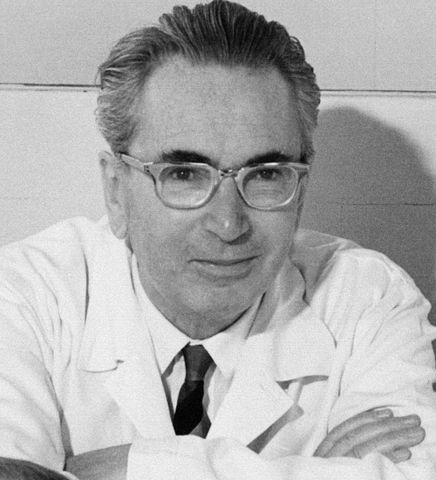Meaning as a cure for depression and other ills.
Ever more people today have the means to live, but no meaning to live for. — Victor Frankl
In Man’s Search for Meaning, the neurologist and psychiatrist Victor Frankl (1905–1997) wrote about his experience as a concentration camp inmate during the Second World War. He observed that those who survived longest in concentration camps were not those who were physically strong, but those who retained a sense of control over their environment.
He remarked,
We who lived in concentration camps can remember the men who walked through the huts comforting others, giving away their last piece of bread. They may have been few in number, but they offer sufficient proof that everything can be taken from a man but one thing: the last of human freedoms—to choose one’s own attitude in any given set of circumstances—to choose one’s own way.
Frankl’s message is ultimately one of hope: even in the most absurd, painful, and dehumanizing situation, life can be given a meaning, and so too can suffering. His experience as a concentration camp inmate taught him that our main drive or motivation in life is neither pleasure (as Freud had thought) nor power (as Adler had thought), but meaning. After his release Frankl founded the school of logotherapy, which is sometimes referred to as the ‘Third Viennese School of psychotherapy’ because it came after those of Freud and Adler. The goal of logotherapy (from the Ancient Greek logos, in this context meaning ‘reason’ or ‘principle’) is to carry out an existential analysis of the person and, in so doing, to help him discover meaning for his life. According to Frankl, meaning can be found through:
- Creativity or giving something to the world through self- expression,
- Experiencing the world by interacting authentically with our environment and with others, and
- Changing our attitude when we are faced with a situation or circumstance that we cannot change.
 Thus depression is a person’s way of telling himself that something is seriously wrong and needs working through and changing. Unless this can be achieved, there will continue to be a mismatch between his lived experience and his desired experience, between the meaninglessness of everyday life and the innate drive to find meaning, to self-actualize, to be all that he can be. From an existential standpoint, the experience of depression obliges a person to become aware of his mortality and freedom, and challenges him to exercise the latter within the framework of the former. By meeting this very difficult challenge, he can break out of the cast that has been imposed upon him, discover who he truly is and, in so doing, begin to give deep meaning to his life.
Thus depression is a person’s way of telling himself that something is seriously wrong and needs working through and changing. Unless this can be achieved, there will continue to be a mismatch between his lived experience and his desired experience, between the meaninglessness of everyday life and the innate drive to find meaning, to self-actualize, to be all that he can be. From an existential standpoint, the experience of depression obliges a person to become aware of his mortality and freedom, and challenges him to exercise the latter within the framework of the former. By meeting this very difficult challenge, he can break out of the cast that has been imposed upon him, discover who he truly is and, in so doing, begin to give deep meaning to his life.
Extract from “Man’s search of meaning” Viktor E. Frankl
